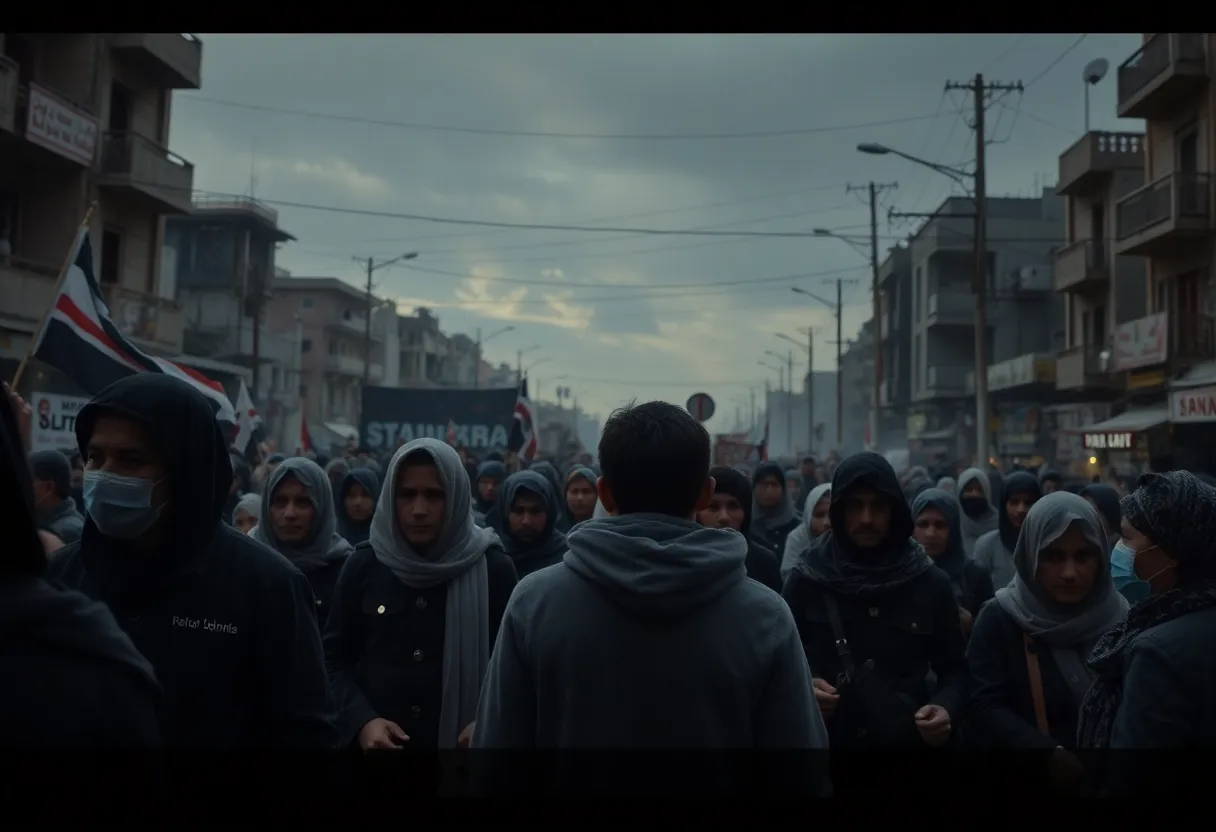News Summary
Following a 12-day conflict, a U.S.-brokered ceasefire between Iran and Israel has paused hostilities, yet underlying issues remain unaddressed. Iran faces internal dissent as voices of opposition grow amidst a tragic loss of over 600 lives due to Israeli strikes. Meanwhile, in Israel, Prime Minister Netanyahu considers a snap election amid public protests urging peace and the return of hostages. The situation in Gaza is dire, with significant civilian casualties. The precarious balance of peace hangs in the air as both nations grapple with distrust and the potential for escalating conflict.
Tensions Persist as Iran and Israel Engage in Hostilities Despite U.S.-Brokered Ceasefire
After a whirlwind 12-day conflict, a U.S.-brokered ceasefire between Israel and Iran has momentarily halted hostilities, but the road ahead remains rocky and uncertain. While leaders on both sides may be putting on a brave face, deep-seated issues continue to simmer beneath the surface.
Internal Strains in Iran
Back in Iran, the country’s supreme leader, Ayatollah Ali Khamenei, is not just dealing with external threats but is also facing significant internal challenges. Reports suggest that he has launched a crackdown on dissent, as voices of opposition grow louder amidst the chaos. The intense military strikes from Israel resulted in a tragic loss of life, claiming the lives of thousands of Iranian civilians, military officials, and nuclear experts. The toll is staggering, with reports estimating around 627 deaths in Iran compared to 28 in Israel.
State Funerals and National Mourning
As a show of solidarity and mourning, large crowds gathered in Tehran for state funerals honoring the fallen. The Iranian government even mobilized citizens to ensure significant attendance, showcasing a drive for national unity amidst tragedy. The emotional atmosphere highlighted the country’s determination to stand strong against perceived external aggression.
Political Maneuvering in Israel
Meanwhile, across the border in Israel, Prime Minister Netanyahu is contemplating a snap election. Many speculate that this political move may be strategically tied to his aggressive stance against Iran, as he faces mounting domestic pressures. Despite the ceasefire, Netanyahu’s history of undermining such agreements has created skepticism regarding the durability of peace. If circumstances allow for it, he may very well initiate further military actions.
Public Sentiment and Protests
Public sentiment in Israel is clearly divided. Tens of thousands gathered in Tel Aviv’s Hostages Square, calling for an end to hostilities and urging the government to bring Israeli hostages back home. Protesters even expressed hopes that President Trump could wield his influence to demand a ceasefire. This demonstrates a complex relationship with foreign policy and a renewed faith in leadership interventions, even amidst criticisms of the administration’s decisions leading to increased regional instability.
The Humanitarian Crisis in Gaza
The violence in Gaza has been particularly devastating, resulting in significant civilian casualties and sparking a humanitarian crisis that has not been ignored by the public. More and more voices in Israel are clamoring for peace, showcasing a deep-rooted desire for resolution rather than continual warfare.
Escalating Nuclear Concerns
On the Iranian front, reports indicate that the regime is contemplating the development of nuclear weapons in response to the Israeli attacks. Such intentions would undoubtedly escalate tensions not just with Israel but across the entire region. Iranian leaders are vowing revenge against Israel, hinting at a cycle of retaliation that might keep this conflict alive for some time.
Deteriorating Trust and Future Negotiations
Trust between Iran and Western nations has taken a significant hit following these events. This deterioration complicates any potential diplomatic negotiations regarding nuclear issues, making it increasingly difficult to chart a peaceful path forward.
Ongoing Unrest in the West Bank
The situation is precarious not just in Israel and Iran but also in the occupied West Bank, where Israeli officials have taken actions against settlers involved in confrontations with security forces during the unrest. This adds another layer to the already complex web of regional tensions.
Final Thoughts
As the world watches this tenuous ceasefire, fears of a broader conflict continue to loom large. The international community remains on high alert as the situation evolves. It’s a reminder that peace can be fragile and fleeting, and the path to resolution is fraught with challenges.
Deeper Dive: News & Info About This Topic
- The Guardian: Iran-Israel Ceasefire
- Wikipedia: Iran–Israel Relations
- CNN: Israel-Iran Conflict Live Updates
- Google Search: Iran Israel Ceasefire
- Al Jazeera: Live Blog on Israel-Gaza Conflict
- Google Scholar: Iran Israel Conflict
- Time: China and U.S. Diplomacy Amidst Iran-Israel War
- Encyclopedia Britannica: Iran-Israel Relations
- Sky News: Middle East Live Updates
- Google News: Israel Iran Conflict

Author: STAFF HERE ORLANDO WRITER
ORLANDO STAFF WRITER The ORLANDO STAFF WRITER represents the experienced team at HEREOrlando.com, your go-to source for actionable local news and information in Orlando, Orange County, and beyond. Specializing in "news you can use," we cover essential topics like product reviews for personal and business needs, local business directories, politics, real estate trends, neighborhood insights, and state news affecting the area—with deep expertise drawn from years of dedicated reporting and strong community input, including local press releases and business updates. We deliver top reporting on high-value events such as Orlando International Fringe Theatre Festival, Megacon Orlando, and Central Florida Fair. Our coverage extends to key organizations like the Orlando Economic Partnership and Hispanic Chamber of Commerce Metro Orlando, plus leading businesses in leisure and hospitality that power the local economy such as Walt Disney World Resort, AdventHealth, and Universal Orlando. As part of the broader HERE network, including HEREJacksonville.com, HEREPetersburg.com, HERETallahassee.com, and HERETampa.com, we provide comprehensive, credible insights into Florida's dynamic landscape.




